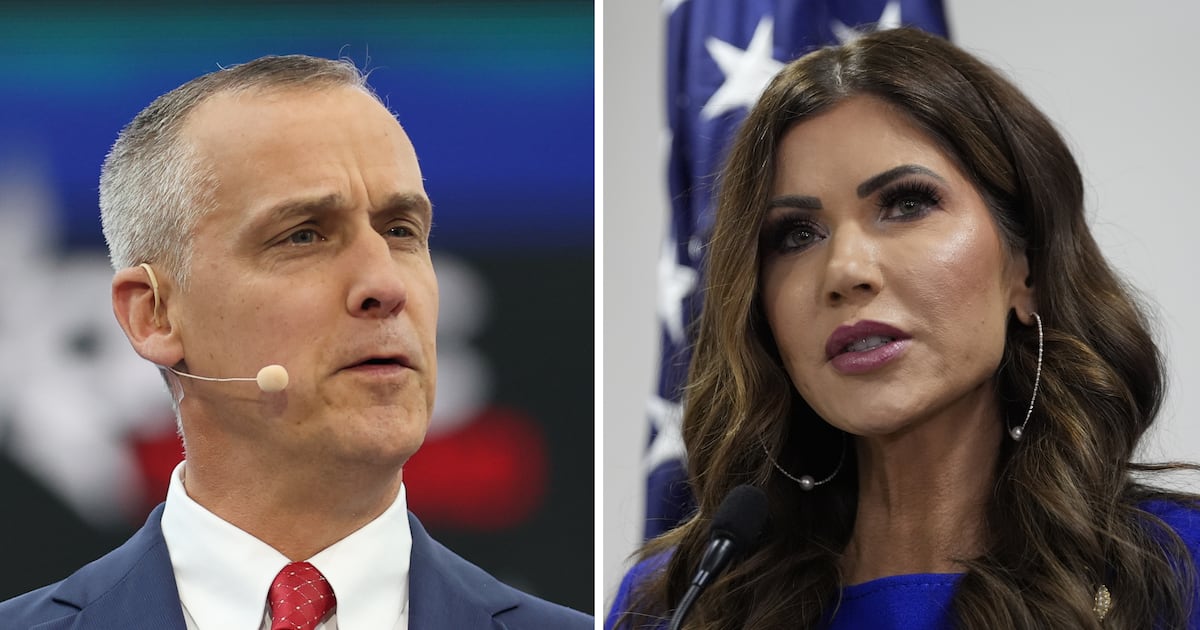Venture capitalist and Republican senatorial candidate J.D. Vance has made his crusade against “woke capital” a cornerstone of his campaign. And in fact, his own firm, Narya Capital, appears to have fallen victim to corporate cancel culture.
This spring, the Delaware division of corporations canceled all three of Narya’s entities in the state—not for its politics, mind you, but seemingly for clerical oversights.
Records with the Delaware secretary of state show that the company’s registered agent, Cogency Global, resigned in March. One month later, the state changed the firm’s status to “cancelled.” Nayra had lost its business charter.
Narya reconciled with Delaware on Nov. 10, after paying an administrative fine and once again securing Cogency Global as its agent. While the circumstances surrounding the resignation are unclear, corporate law experts say the most common reason is simply a company’s failure to pay the agent its annual fee.
In the interim, Narya continued business operations, including participating in multimillion-dollar funding rounds for the right-wing online video platform Rumble and the gene therapy startup Kriya Therapeutics.
While these sorts of administrative goofs can be common and are easily remedied under Delaware’s famously business-friendly regulations, experts in corporate law said the slip up was embarrassing and a “sloppy” corporate practice. They also noted that, while the forfeiture would likely have minimal impact on its investments, Narya leadership would almost certainly have been notified.
Eric Talley, Sulzbacher professor of law at Columbia University, told The Daily Beast that the error was “corporate lawyering 101.”
“It’s a surprising lapse, and worth noting,” Talley said. “I have a whole day dedicated to this with my first-year students, when I say here are the key things to do, and if you don’t do these things then you’re sort of phoning it in and it would be professionally embarrassing for you. Sort of on the order of a dental hygienist who fails to floss.”
Ben Edwards, professor in corporate and securities law at the William S. Boyd School of Law at the University of Las Vegas Nevada, called it “sloppy business lawyering.” Edwards said the lapse, in combination with Vance’s political persona, may deter future investment in the firm, which in Jan. 2020 raised $93 million for its initial round of financing.
“Narya Capital is probably a bad bet for investors. The firm’s lapse here shows a lack of attention to detail. He’s obviously distracted by the political campaign. He’s also alienating large numbers of people with his statements on social media,” Edwards said, noting the oversight occurred when Vance was ramping up his public visibility ahead of his campaign.
He added that a cancelation “doesn’t tend to generate confidence in the general competence of Narya’s principals,” and “may deter other investors from trusting them to manage capital.”
“It’s not good,” Edwards said. “Any business accepting an investment from Narya in the future should probably request a certificate of good standing from them before the deal closes to ensure that they remain authorized to do business.”
However, every expert contacted for this article said this type of forfeiture would ultimately have no impact on the company’s ability to conduct business, with the exception of exposing its top brass to personal liability.

J.D. Vance attends the second day of the annual Allen & Company Sun Valley Conference in 2017.
Drew AngererTom Antonucci, a corporate law specialist and partner at D.C. firm Wiley Rein, said cancelations at this scale are a matter of “inattentive recordkeeping” and wouldn’t likely impact operations, though he admitted that, in “rare cases,” it could result in a breach of contract and expose the company to personal liability.
“Generally speaking, an administrative cancellation for failure to maintain a registered agent does not by itself materially affect a company’s ability to operate,” Antonucci said, noting that a company in that situation may be unable to pursue or defend a lawsuit.
But, he added, administrative cancelations happen on a “fairly regular basis” and could be fixed “relatively easily.”
The legal experts all noted the forfeiture would likely have minimal impact on the investment in Rumble, announced in May, and the July investment in Kriya.
Narya’s agent in Ohio, where it has registered three branches of its Delaware entities, told The Daily Beast in an email the company wouldn’t be “providing comment,” but was “willing to provide background for your report.”
“We can emphatically state that Narya and its affiliated entities are in good standing in Delaware. Further, the qualification of Narya or its affiliates in Delaware had no impact or bearing on its investment in Rumble whatsoever,” the agent wrote. “Any assertion to the contrary would not only be factually inaccurate, but would also deceptively mislead readers.”
The agent did not address questions about when Narya learned of the Delaware cancelation, or whether Rumble and Kriya were aware.
The Daily Beast reached out to the Vance campaign, Rumble, and Kriya Therapeutics, but has not received a reply.
Vance, a self-styled blue-collar hero, rose to fame on the back of his 2016 bestseller Hillbilly Elegy. But by that time, he was already well-enmeshed in the corporate investment world.
The Yale Law grad—whose mentor there, Amy Chua, was a specialist in business law—left for San Francisco upon graduation to embark on a career in venture capitalism. He later joined firms steered by Silicon Valley moguls like PayPal co-founder and Facebook board member Peter Thiel and AOL co-founder Steve Case.
Narya is a partnership between Vance and venture capitalist Colin Greenspon, with major backing from Thiel, Google co-founder Eric Schmidt, and longtime tech entrepreneur Marc Andreessen. Thiel has since spent at least $10 million to support Vance’s Senate bid, which pits him against a number of Republican millionaires.
Narya established three entities in Delaware on the same day in 2019, and all three had registered their Ohio branches in early 2020. About two weeks after Narya’s entities were canceled this April, the firm appears to have registered a fourth Delaware entity—Narya AB Blocker, Inc.
While the fund claims to focus investments in Midwestern startups, in keeping with Vance’s roots, its two most recent major ventures are exceptions. Rumble is a Canadian company and last month chose to establish its U.S. headquarters in Florida. Kriya’s outposts are in California and North Carolina, according to its website.
And while the combined business experience of Narya’s principals suggests the Delaware cancelations would be uncharacteristic, Talley noted that corporate leaders are often not directly responsible for these tasks.
“In fairness to Vance, he went to a great law school and he knows how to do this. This isn’t your job. That shouldn’t be you,” he said. “You need an in-house lawyer or have an outside firm responsible for this.”
It’s unclear whether Narya did so. However, this is not the first time Vance blew a financial deadline.
Vance filed his federal candidate disclosure on Nov. 24—24 days late, after a 90-day extension in July. On Nov. 8, Vance spokesperson Taylor Van Kirk told The Daily Beast that “we are working on the report and are just waiting for a few additional pieces of information from third parties.” Narya regained its good standing in Delaware two days later.
The disclosure states that Vance personally has more than $2 million in Narya, with stakes worth between $101,002-$265,000 in Rumble and $51,002-$115,000 in Kriya. He also reported receiving $408,106.21 last year in salary from Narya, while making $347,752 from Hillbilly Elegy.










